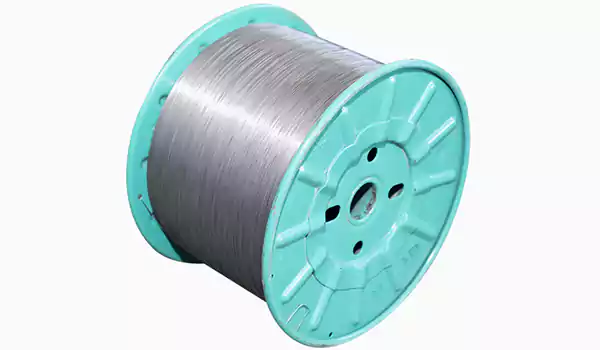
Electing the proper metallic pipe for project requirements is contingent on insight into its parameters and potential roles. Regular specs cover substrate, thickness rating, length value, and permissible tolerances. Attributes such as pressure limits, heat performance, and corrosion resistance play a major role in pipe selection for industrial, commercial and residential projects. Metal pipes serve uses across construction, manufacturing, infrastructure, water supply, gas distribution, drainage systems, structural support and specialty sectors
- Clarifying the task's requirements enables selection of the most fitting piping
- Study applicable standards and codes for exact specifications of metal piping
- Pick materials according to load pressure, thermal stresses and corrosive exposure
Steel Tube Products: Robustness, Longevity, and Adaptability
Tubular steel components offer notable strength and are chosen for many industrial, structural and commercial installations. Their remarkable lifespan comes from specific construction and forming techniques. Engineered by converting steel billets and rods into seamless or welded tubes, they provide strong anti-corrosion and wear properties for extended durability in challenging environments. Versatile tube steel can be fabricated into broad ranges of profiles—from standard tubes to complex geometries—for bespoke applications. Applied in multifaceted structural, mechanical and architectural contexts, tube steel's resilient strength, persistent durability and flexible form capabilities secure its essential place in modern building and manufacturingExpanded Metal Panels: Boosted Security and Safety
Expanded metal mesh is a growing selection for applications needing strong security and elevated safety. The open configuration enables sightlines and simultaneously acts as a barrier to prevent unauthorized entry and reduce hazards. The mesh is configurable in hole size and metal gauge to suit specific requirements
- High durability of expanded metal protects against impact forces, vandalism and extreme weather
- In addition, easy setup and little maintenance contribute to its broad implementation
- Serving both critical facility protection and personnel safety in industry, expanded metal affords comprehensive guarding capabilities
Industrial Applications of Steel Mesh
Metal mesh is adopted across industrial contexts because of strong mechanical properties, long service life and flexible applicability. It contributes a durable scaffold for filtering, screening, strengthening and guarding applications. In construction, steel mesh is frequently used as reinforcement in concrete to boost tensile strength and reduce cracking. Additionally, it is used in bridges, tunnels and civil engineering projects for structural support and load-bearing capacity. Industrial manufacturing uses steel mesh for filtering and screening, leveraging its fine weave to separate different-sized particles in sieving and purification processes. Steel mesh is applied in protection systems—guardrails, fences and cages—to deter entry and safeguard personnel. The material's tensile resilience enables it to handle impact and force, ensuring reliable protection under demanding conditions
Structural Uses of Metal Pipes
The strong character of metal pipes ensures their value in a broad range of structural uses. Their malleability permits the formation of strong frameworks for diverse load-bearing structures across industries. Across tall buildings, bridges and subterranean pipelines, metal pipes deliver foundational support while enduring harsh environmental stresses. Corrosion defence plus convenient fabrication cement their position in modern building practices
Picking the Right Tube Steel for an Application
During construction or fabrication planning, picking the right tube steel is fundamentally important. Given its strong, long-lasting and lighter profile, tube steel works well across multiple uses. Nevertheless, many grades and detailed specifications can make choosing tube steel a tricky process
- Evaluate project purpose, loading requirements and environmental context to ensure suitability
- Aspects like wall thickness, diameter and material grade directly affect tube steel performance
When load demands are high, choose heavy-gauge, high-yield tube steel with thicker walls; for lightweight assemblies, select thinner-walled, low-mass steel
Refer to seasoned engineers or dependable steel suppliers to choose the ideal tube steel for your application
Why Expanded Metal Benefits Construction
Expanded metal brings a range of functional and cost-effective benefits to construction work. Being lightweight it simplifies handling and installation while cutting labor expenses. In addition, the open formation supports better ventilation and drainage, reducing moisture buildup. Sturdy build quality suits it for roles demanding strong resistance and enduranceConnections for Metal Pipes Explained
Piping connectors are fundamental pieces of any plumbing or piping installation to maintain fluid or gas passages. Selecting an appropriate joint is determined by diameter, substrate, rated pressure and intended use. Popular steel near me connection methods include threaded, flanged and welded joints with varying strength and sealing behaviors. In threaded systems male and female threads are screwed together, flanged systems use bolted flat surfaces to seal, and welded systems fuse pipes using heat and pressure. Understanding characteristics of each joint type is crucial for achieving leak-free, operational pipingMetal Steel Mesh: A Versatile Material for DIY Projects
Steel mesh brings durable, versatile and strong characteristics suitable for various DIY creations. The mesh's open grid supports making fences, screens and ornamental pieces. Besides, being lightweight and easy to manipulate it is a favorite among both new and practiced DIYers
- Explore metal mesh options for your next DIY creation
Metal Pipes: Plumbing and Structural Roles
Metal pipes have become essential parts of modern infrastructure, construction and building systems due to strength, durability and adaptability. From an early focus on plumbing, metal pipes now contribute substantially to structural reinforcement and support. From structural foundations to pipelines for water and gas, metal pipes contribute vital operational roles within modern systems. Toughness enables them to withstand heavy pressures and loads while corrosion resistance secures long-term function. Besides, pipes’ adaptability makes them easy to form into various setups to satisfy different application requirements
Expanded Metal: Design Possibilities and Functionality
Expanded metal enables varied design expressions alongside strong functionality. Because of its open pattern it fits applications ranging from visual architectural accents to safety systems in industry. The material's inherent strength supports heavy loading while maintaining pleasing visual characteristics
- Plus, the open structure enhances airflow and is well-suited to areas needing thermal regulation or cooling
- From construction and manufacturing to transportation and aesthetic design, expanded metal's applications are extensive